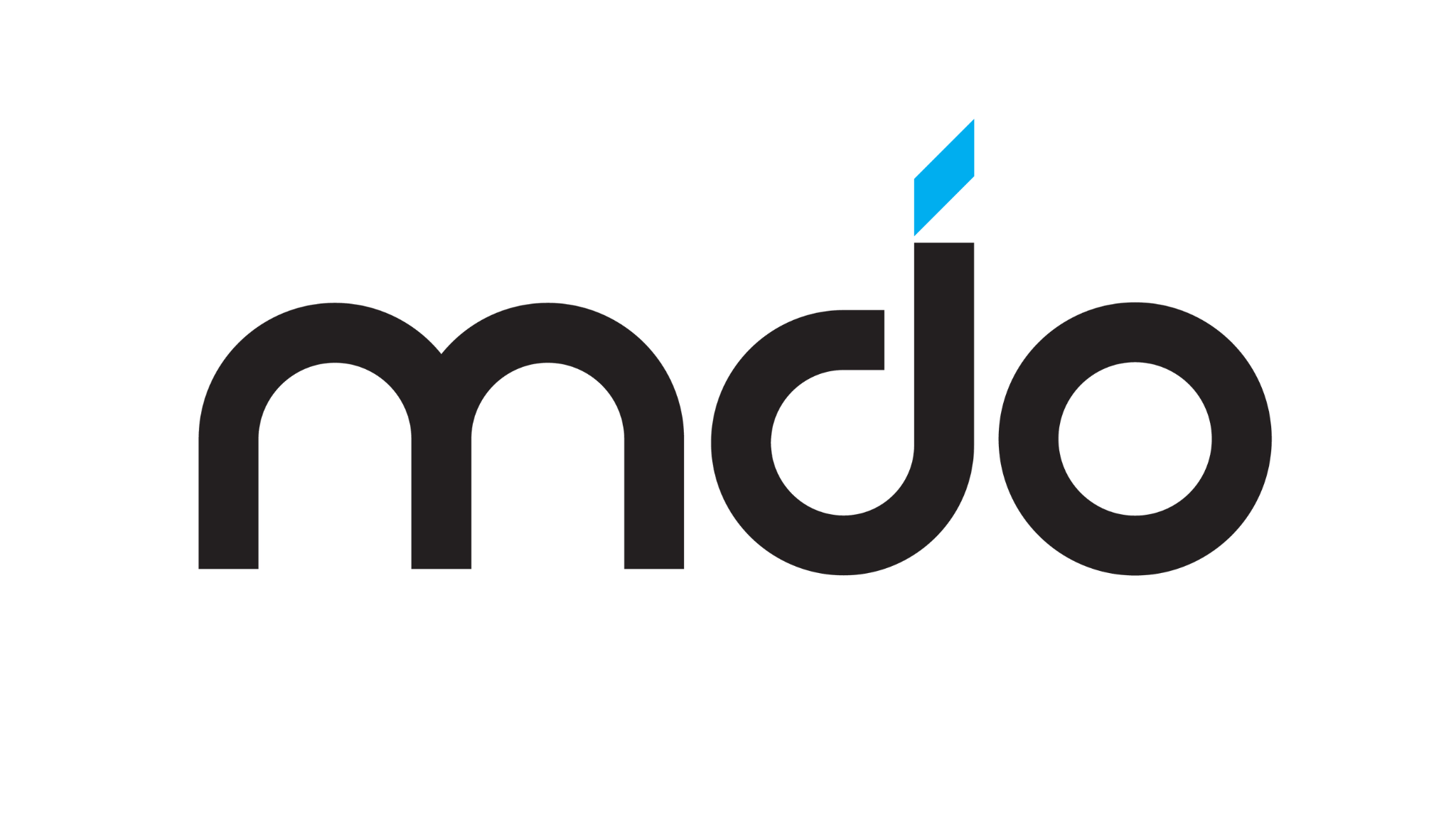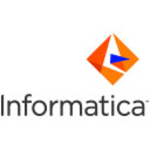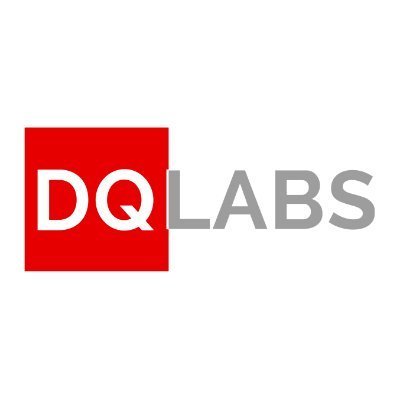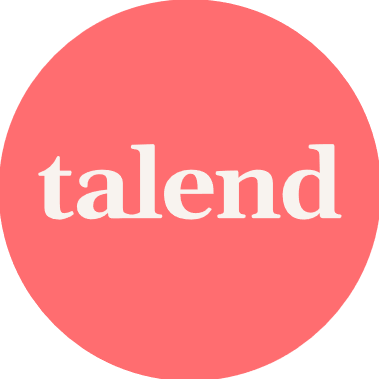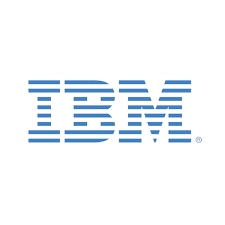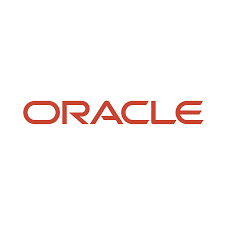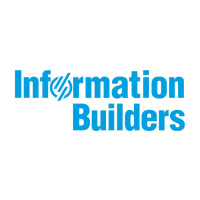Yes, Master Data Management (MDM) software can be accessible from various devices and platforms. This is made possible by its cloud-based infrastructure, which enables customers to view and manage their data from any location, on any device with an internet connection. MDM software also has mobile-friendly interfaces for easy use on smartphones and tablets. This allows enterprises to keep data consistent and accurate regardless of the device or platform used.
List of Best Master Data Management Software
SAS Data Management - the powerful software designed to streamline complex data operations and boost user efficiency. Its advanced features for data integration, quality control and governance provide a seamless solution for managing and analyzing da...Read More SAS Data Management
Profisee is an exceptional Master Data Management (MDM) platform that addresses data quality challenges and streamlines data governance processes. Endorsed by data professionals, it seamlessly integrates with Microsoft and other cloud services. With...Read More Profisee
STEP is a master data management platform by Stibo Systems that streamlines and improves product information management. By promoting data accuracy and enabling sustainability efforts, STEP empowers large businesses to achieve better outcomes through...Read More STEP
Prospecta MDO – solution for achieving digital success. With its powerful data analysis, transformation, governance, and collaboration features, this cloud platform enables smooth scalability with pre-configured data models and business rules...Read More Prospecta MDO
SiriusOctopus365 is a MDM solution for Microsoft Dynamics 365 Business Central. Seamlessly integrate databases and streamline data exchange to boost collaboration and productivity. With SiriusOctopus365, managing critical data becomes effortless, giv...Read More SiriusOctopus365: MDM
Dell Boomi is a iPaaS solution that effortlessly connects applications, data, and teams to enhance business efficiency. With a worldwide user base of 20,000+ clients, it offers intelligent automation features and streamlined API management. Experienc...Read More Dell Boomi
Informatica MDM is master data management software that ensures the integrity and consistency of data across your organization. Through its advanced features, it helps organizations establish a comprehensive and unified view of their data, leading to...Read More Informatica MDM
DQLabs, a data quality platform utilizing AI and Machine Learning to tackle data quality, governance, curation, and master data management challenges faced by organizations. Our user-friendly features and advanced technology work seamlessly together...Read More DQLabs
Talend Data Fabric is a Master Data Management (MDM) software that caters to the needs of SMEs, large companies, and government organizations. With its seamless integration of process management, data masking, match and merge functions, relationship...Read More Talend Data Fabric
IBM InfoSphere Information Server, a complete Master Data Management solution perfect for SMEs, Enterprises, and Agencies. This powerful tool simplifies data management processes with its wide range of features including Process Management, Data Mask...Read More IBM InfoSphere Information Server
Oracle MDM solution for managing master data for SMEs, Enterprises, and Agencies. With a platform that includes features such as process management, data masking, matching and merging, relationship mapping, and data governance, Oracle MDM empowers or...Read More Oracle MDM
TIBCO EBX is a Master Data Management software designed for SMEs, Enterprises, and Agencies. This all-in-one solution offers a wide range of features such as Process Management, Data Masking, Match & Merge, Relationship Mapping, and Data Governance,...Read More TIBCO EBX
Ataccamas Master Data Management platform is solution for SMEs, Enterprises, and Agencies. With advanced features like Process Management, Data Masking, Match & Merge, Relationship Mapping, and Data Governance, Ataccama simplifies and streamlines dat...Read More Ataccama
Omni-Gen Data Management solution for master data management needs. Ideal for businesses of all sizes and government agencies, this powerful software provides a centralized platform to streamline processes, mask data, merge information, map relations...Read More Omni-Gen Data Management
Learn More About Master Data Management Software
- What Is Master Data Management Software?
- What Are The Recent Trends In Master Data Management Software?
- Benefits Of Using Master Data Management Software
- Important Factors To Consider While Purchasing Master Data Management Software?
- What Are The Key Features To Look For In Master Data Management Software?
- Why Do Businesses Need Master Data Management Software?
- How Much Time Is Required To Implement Master Data Management Software?
- What Is The Level Of Customization Available In Master Data Management Software?
- Which Industries Can Benefit The Most From Master Data Management Software?
- Conclusion
What Is Master Data Management Software?
Master Data Management (MDM) software is a data management solution that allows businesses to consolidate and manage critical data from multiple sources in one spot. It provides businesses with a unified, accurate, and consistent view of their data, which is essential for making informed decisions and achieving corporate success. MDM software identifies and categorizes master data, which includes customer, product, and employee information, and then maintains its integrity throughout its lifecycle.
It establishes a framework for data governance, data quality, and data integration, guaranteeing that data is correct, complete, and current across all systems and applications. One of the primary benefits of utilizing MDM software is its capacity to manage vast amounts of data from a variety of sources, including ERP systems, CRM platforms, and other business applications.
It eliminates data silos and maintains data consistency, which is crucial for enterprises that work in complex and dynamic situations. In addition to data management, MDM software provides powerful analytics capabilities, allowing businesses to get actionable insights from their data. It enables data-driven decision-making, resulting in more efficiency, lower costs, and higher customer satisfaction.
When selecting MDM software, it is critical to assess its capabilities, including data integration, data quality management, workflow management, and security, to ensure that it matches your organization's specific requirements. It is also vital to assess the software's scalability and flexibility, as your data requirements may alter in the future.
Informatica MDM, SAP Master Data Governance, and IBM InfoSphere MDM are some of the most prominent MDM software solutions on the market. Investing in the correct MDM software can help your business achieve long-term success by allowing you to realize the full potential of your data. Make sure to investigate and evaluate several choices before making a decision.
What Are The Recent Trends In Master Data Management Software?
The field of Master Data Management (MDM) software is continually expanding, with new trends and technologies emerging to suit businesses' ever-increasing expectations for precise and integrated data management solutions.
We will look at some of the most recent trends in Master Data Management software that you should keep in mind as you evaluate potential solutions for your firm.
1. Cloud-Based MDM Solutions: With the advent of cloud computing, MDM manufacturers have begun to offer cloud-based solutions, which provide simple access to data while decreasing the need for costly hardware and infrastructure. This trend is gaining traction as more companies recognize the advantages of cloud-based MDM, such as scalability, cost-effectiveness, and real-time data access.
2. Integration With AI And Machine Learning (ML): As data volumes increase, MDM solutions use AI and ML technologies to automate data cleansing, standardization, and matching operations. This allows MDM systems to learn from patterns and continuously improve data quality and accuracy, resulting in more informed decision-making.
3. Mobile-Friendly Interfaces: As the use of mobile devices grows, MDM software companies are developing mobile-friendly interfaces that allow users to access and manage data while on the go. This trend is especially useful for firms with a remote staff, as it allows them to keep their data updated and accurate in real time.
4. Data Governance And Security: With increasing privacy concerns and data rules, businesses must prioritize data governance and security. MDM solutions increasingly include advanced governance and security features like role-based access control, data encryption, and audit trails to ensure compliance and secure sensitive data.
5. Multi-Domain MDM: With data coming in from numerous sources, controlling just one domain, such as customer or product data, is no longer sufficient. Multi-domain MDM solutions are gaining popularity because they enable businesses to manage data from multiple domains, including customer, product, supplier, and more, in a centralized system, ensuring consistency and accuracy throughout the organization.
6. Self-Service And Collaboration: MDM software is now enabling business users by providing self-service capabilities that enable them to search, examine, and analyze data without requiring IT assistance. This approach promotes data-driven decision-making and enhances communication across business teams, data stewards, and IT.
Benefits Of Using Master Data Management Software
Master Data Management (MDM) software is a sophisticated tool that can help businesses manage their key data assets. This program enables enterprises to achieve a single view of their data, decrease data redundancy, and gain greater control over their information.
Let's explore, the main advantages of utilizing MDM software and help you make an informed decision when making a purchase.
1. Improved Data Quality: One of the primary advantages of utilizing MDM software is increased data quality. Implementing a centralized data management system ensures that data used across multiple business processes is consistent, accurate, and up to date. This decreases the likelihood of errors and inconsistencies, resulting in better decision-making and increased operational efficiency.
2. Increased Data Governance: MDM software also assists firms in implementing effective data governance policies. Businesses can use this software to set and enforce data standards throughout their organization, ensuring uniformity and compliance. This is especially important in businesses with stringent regulatory standards, including healthcare and banking.
3. Enhanced Business Insight: MDM software gives businesses a single, consolidated view of their data, allowing them to obtain important insights into their operations and customers. By evaluating this data, organizations can uncover trends, patterns, and linkages that can help them make strategic decisions and stay ahead of their competitors.
4. Efficient Data Integration: Businesses today must deal with massive amounts of data from a variety of sources. MDM software streamlines data integration by providing a centralized platform for managing and integrating data from many systems and applications. This enables for faster data processing and reduces redundant data, hence increasing overall operational efficiency.
5. Cost Savings: Implementing MDM software can also assist firms reduce the costs of managing and preserving data. A unified solution eliminates the need for different databases and data management tools, lowering total IT costs. MDM software also enhances data accuracy and accessibility, which lowers the expenses associated with data inaccuracies and human processing.
6. Improved Data Security: Data security is a significant priority for businesses today. MDM software protects vital data by including access controls, audit trails, and data encryption capabilities. This helps to prevent data breaches and preserve sensitive information, hence maintaining customer and stakeholder trust.
Important Factors To Consider While Purchasing Master Data Management Software?
Master Data Management (MDM) software is an essential tool for firms that need to efficiently manage and keep correct, consistent, and up-to-date master data throughout their organization. With the market for MDM software set to expand, it is critical to carefully weigh your options before making a purchase.
Here are some crucial aspects to consider while selecting MDM software:
1. Data Governance Capabilities: The fundamental goal of MDM software is to provide a robust basis for data governance. It is critical to ensure that the software you select has strong data governance features, such as data quality monitoring, profiling, and data lineage. These features will assist you in ensuring data integrity and compliance with data regulations.
2. Scalability: As your company expands, your master data will grow in volume and complexity. As a result, it is critical to select an MDM system that can grow alongside your firm. Whether it is handling a bigger volume of data or integrating with new systems, make sure that the software can meet your future requirements.
3. Integration Capabilities: Because MDM software serves as a central hub for all of your master data, it must be able to work seamlessly with your current systems. Look for software with strong data integration capabilities, such as support for several data formats, APIs, and connectors to numerous databases and apps.
4. Customization And Configuration Options: Each business has distinct data management needs, and a one-size-fits-all solution may not be appropriate for everyone. Look for MDM software that has customization and configuration choices, so you can adjust it to your individual needs without sacrificing key functionality.
5. User-Friendly Interface: MDM software is utilized by both IT professionals and business users who may lack technical competence. As a result, it is critical to select software with a simple interface that is straightforward to navigate and understand. This will allow all key stakeholders to readily access and manage master data.
6. Data Security And Privacy: With data breaches becoming more regular, you must verify that the MDM software you chose has strong security mechanisms in place to secure your sensitive data. Look for features like role-based access control, data encryption, and compliance with data privacy laws like GDPR.
7. Vendor Help And Training: Implementing a new software system can be difficult, and it is critical to have consistent help from the vendor both throughout and after the process. Look for vendors who offer comprehensive training and continuous support to ensure you get the most out of your MDM software.
By keeping these considerations in mind when selecting MDM software, you can select a solution that suits your organization's specific demands and data management objectives. Investing in the correct MDM software will not only ensure efficient data administration, but will also allow for more informed decision-making and better overall business operations.
What Are The Key Features To Look For In Master Data Management Software?
When shopping for Master Data Management (MDM) software, there are a few crucial elements to consider.
These features will guarantee that you make an informed selection and receive the most value from your investment.
1. Data Integration Capabilities: One of MDM software's key functions is to consolidate data from multiple sources into a single, centralized area. Look for software that can handle a variety of data kinds and formats, as well as structured and unstructured data.
2. Data Quality Management: Data quality is critical for making informed decisions and achieving corporate success. Look for MDM software that includes data cleansing, standardization, and governance tools to ensure that your data is accurate, comprehensive, and consistent.
3. Data Governance: MDM software should include a comprehensive data governance framework that enables you to develop and enforce data policies, rules, and standards. This ensures that your information is handled in a controlled and secure manner.
4. Data Mastering: This is the process of finding and combining duplicate and redundant data in your system. Look for MDM software that supports sophisticated mastering features like probabilistic matching, survivorship rules, and hierarchy management.
5. Data Sharing And Collaboration: MDM software should support data sharing and collaboration across teams and applications. This provides a single picture of data throughout the business and promotes cross-functional collaboration.
6. Scalability And Flexibility: Choose MDM software that can scale and adapt to your organization's changing demands. It should be adaptable enough to include new data sources, procedures, and processes without interrupting your current operations.
7. Security And Compliance: MDM software should adhere to industry norms and regulations to safeguard the security and privacy of your information. Look for data encryption, user access limits, and audit trails to protect your information.
8. Real-Time Data Processing: Being able to process and analyze data in real time is critical for making timely and educated decisions. Look for MDM software that supports real-time data processing and can manage massive amounts of data without sacrificing performance.
9. Reporting And Analytics: MDM software should include user-friendly and customized dashboards and reports to help you gain insight into your data. To get the most out of your data, look for tools such as data visualization, drill-down capabilities, and predictive analytics.
10. User-Friendly Interface: Finally, MDM software should have an easy-to-navigate and utilize interface. This ensures that your team can quickly adjust to the software and take advantage of its advantages.
Why Do Businesses Need Master Data Management Software?
Businesses nowadays are dealing with an expanding amount of data from a variety of sources, including customer information, product data, sales figures, and more. This data is critical for decision making, but it may also be overwhelming if not managed properly. Here's where Master Data Management (MDM) software comes in. MDM software is a solution that enables businesses to store, organize, and manage vital data in a single, centralized location. It offers a comprehensive picture of all data throughout the company, ensuring consistency, correctness, and completeness.
Here are a few reasons why firms require the MDM software:
1. Data Quality Management: MDM software enables firms to ensure that their data is of high quality. This includes removing duplicate entries, standardizing data formats, and correcting any incorrect or incomplete information. This improves decision-making, customer service, and operational efficiency.
2. Data Governance: MDM software enables firms to establish and enforce data governance rules and policies. This ensures that data is consistent and reliable regardless of who uses or updates it. Businesses that preserve data integrity can avoid compliance concerns and make confident judgments based on reliable information.
3. Improved Business Processes: MDM software simplifies workflows and automates data management operations. This saves firms time and resources while lowering the danger of human error. Teams can interact more effectively and make educated decisions faster when data is structured and accessible in one location.
4. Improved Customer Experience: MDM software enables businesses to generate a unified, accurate image of their consumers across all touch points. This enables them to provide tailored and seamless experiences, build client loyalty, and boost sales.
5. Scalability: As businesses expand and generate more data, MDM software can adapt and scale accordingly. This guarantees that data is managed and accessible even as the organization grows.
How Much Time Is Required To Implement Master Data Management Software?
Implementation time for Master Data Management (MDM) software varies according to the size and complexity of the organization's data architecture. On average, it can take between 6 months and 2 years to fully establish an MDM solution. The first step in deploying MDM software is to thoroughly evaluate the organization's data sources, procedures, and systems to discover any gaps or discrepancies.
This assessment takes around 2-3 months and is critical for setting the groundwork for effective MDM implementation. Following the assessment, the next stage is to develop a data governance structure that is consistent with the organization's data management goals and objectives. This phase can last 3-6 months, depending on the complexity of the organization's data ecosystem.
The actual deployment of MDM software often takes 3-9 months, depending on the magnitude of the project and the availability of resources. This step consists of configuring the software, mapping data fields, and establishing data governance rules and workflows. Once the MDM software has been established, rigorous testing is required to ensure that the data is managed accurately and consistently.
This testing phase can last 1-2 months and may include back-and-forth tweaks to fine-tune the system. Finally, once the MDM software has been fully built and tested, the firm must train its staff on how to use it efficiently. This training can take between one and two months, depending on the number of users and their familiarity with the software.
What Is The Level Of Customization Available In Master Data Management Software?
Master Data Management (MDM) software provides a variety of capabilities to assist firms in managing their data properly. One important factor to consider when assessing MDM software is the level of flexibility provided. This refers to the software's capacity to adapt to a company's specific data management requirements. In this buyer's guide, we'll look closely at the customization possibilities available with MDM software to help you make an informed purchase.
At a fundamental level, most MDM software allows customers to tailor data fields and attributes to their individual needs. This involves adding new fields, updating existing ones, and specifying validation criteria. This level of flexibility is critical because it allows firms to collect and preserve data relevant to their business activities. In addition to changing data fields, MDM software provides further customization possibilities such as custom workflows and business rules.
These capabilities enable businesses to specify specific actions and processes that are triggered by specified events, such as data updates or approvals. This level of flexibility is especially valuable for businesses with sophisticated data management operations that necessitate a high level of automation. Furthermore, some MDM software has APIs (Application Programming Interfaces), which enable integration with other programs and systems.
This allows enterprises to develop unique interfaces and data flows between their MDM software and other applications they employ. This level of customization is useful for businesses who have several systems in place and require a single source of master data. MDM software normally allows you to customize the style, colors, and themes of the user interface to reflect the identity of your firm.
Some software also supports personalized dashboards and reporting tools to meet the individual demands of various users and jobs inside the firm. Finally, MDM software provides several levels of security and authorization customization. This enables enterprises to manage who has access to specific data and software functions, so preserving the confidentiality and integrity of their master data.
Which Industries Can Benefit The Most From Master Data Management Software?
Master Data Management (MDM) software is a powerful tool that helps businesses enhance the correctness, consistency, and dependability of their vital data. It serves as a central store for all data, resulting in a single source of truth that can be accessed and used by other systems and applications. This not only results in more efficient procedures, but also allows firms to make better informed and strategic decisions based on credible data. But which industries will gain the most from MDM software?
Let us find out.
1. Healthcare: The healthcare industry processes huge amounts of data from different sources, including patient information, insurance claims, and medical research. MDM software can assist firms in this field in successfully managing and integrating this data, resulting in enhanced patient care, fewer errors, and more informed decision-making.
2. Financial Services: In the realm of finance, reliable and consistent data is critical. MDM software can help financial companies manage large amounts of data, such as client information, transaction records, and compliance data. This improves operational efficiency while simultaneously ensuring regulatory compliance.
3. Retail And E-commerce: These industries have intricate data ecosystems that comprise product information, customer data, and sales data. MDM software can assist these firms in maintaining a unified, accurate picture of their data, resulting in improved inventory control, targeted marketing, and customer experience.
4. Manufacturing: The manufacturing industry uses data from a variety of sources, including supply chain, production, and sales. MDM software can assist businesses in streamlining their processes, improving supply chain management, and making data-driven decisions to improve production planning and optimization.
5. Government: Government entities manage massive amounts of data, typically from multiple departments and systems. MDM software can assist government agencies in consolidating and managing data more effectively, resulting in improved public services, better decision-making, and cost savings.
6. Education: MDM software can help manage student, teacher, and academic records. This can result in more efficient administrative operations, better communication between schools and parents, and more accurate student performance tracking and analytics.
Conclusion
To summarize, investing in dependable and effective Master Data Management (MDM) software is critical for any firm trying to optimize data management procedures and increase overall data quality. Throughout this buyer's guide, we've covered the key features, benefits, and factors to consider when selecting an MDM solution. From data integration and cleansing capabilities to advanced security features and scalability, the appropriate MDM software may make a big difference in the effectiveness of your data management operations.
Additionally, understanding your organization's specific demands, budget, and goals is critical when selecting the best MDM software. It is also critical to consider things like vendor reputation, customer support, and available customization possibilities. Finally, by carefully researching and selecting the appropriate MDM software, you can expect to see more data accuracy, less data redundancy and errors, and better overall data governance and compliance. We hope that this guide has provided you with the knowledge you need to make an informed decision about selecting MDM software for your firm.
Master Data Management Software FAQ's
Can Master Data Management Software Be Accessed Across Multiple Devices And Platforms?
Is Master Data Management Software Future-Proof And Adaptable To Emerging Technologies Like AI, Blockchain Or IoT?
Master Data Management (MDM) software is designed to be extremely versatile and adaptable, making it future-proof for upcoming technologies such as AI, blockchain, and IoT.
MDM's ability to centralize and standardize data from numerous sources allows it to readily incorporate and utilize data from different technologies. Furthermore, MDM suppliers are always updating their software to keep up with technological changes, ensuring that it remains adaptive and relevant in an ever-changing digital ecosystem.
Is There A Free Trial Offered To Assess Master Data Management Software Before Committing?
Yes, many firms that sell master data management software offer a free trial or sample version for users to evaluate before making a purchase decision. This enables potential clients to investigate and test the software's features and capabilities, ensuring that it fulfills their unique requirements.
Some free trials may have limited features, while others provide a complete experience for a fixed amount of time. This is an excellent way for businesses to discover whether the software is a suitable fit for their firm before making a financial commitment.
Does Master Data Management Software Offer Data Security Features And Meet Regulatory Compliance Standards?
Yes, most Master Data Management (MDM) software has advanced data security capabilities to protect sensitive and secret information. This encompasses encryption, access controls, and data masking.
MDM software also assists firms in meeting regulatory compliance requirements by enabling data governance, auditing, and reporting. This guarantees that firms comply with industry-specific requirements including GDPR, HIPAA, and PCI DSS. MDM software is critical to ensuring an organization's data integrity and compliance.
Can Master Data Management Software Integrate Seamlessly With Existing Tools And Platforms?
Yes, Master Data Management (MDM) software can work smoothly with your current tools and platforms. This is accomplished via MDM's capacity to centralize and synchronize data from many sources, resulting in a uniform perspective and removing data silos.
The software is also adaptable and can be adapted to operate with your existing systems, ensuring a seamless integration process. MDM allows your business to harness the power of various applications and technologies while ensuring the accuracy and consistency of your master data.




